REAL FLOWERS REPLACE PLASTIC AT CEMETERIES
입력 2023.01.20 (15:07)
수정 2023.01.20 (16:45)
읽어주기 기능은 크롬기반의
브라우저에서만 사용하실 수 있습니다.
[Anchor Lead]
Many Koreans purchase plastic flowers ahead of the seol holiday to lay flowers at cemeteries. But there are moves to encourage the purchase often real flowers instead of plastic ones to reduce the amount of carbon emission coming from the waste.
[Pkg]
Many grave sites at this cemetery are adorned with colorful flowers. Most of them are fake flowers made from plastic. The plastic flowers are affordable and easy to manage, but this also means piles of garbage after every traditional holiday. This is a cemetery park in Gimhae, Gyeongsangnam-do Province. A visitor places a bouquet of chrysanthemums at a grave. Other relatives have brought pots of flowers that they have raised firsthand.
[Soundbite] Lee Hyun-woo(Busan resident) : "I brought fresh flowers that I have raised myself because I think they are better."
Last year Gimhae City outlawed the use of plastic flowers at four local cemeteries. The city no longer needs to deal with 43 tons of waste produced after every holiday, and can save on garbage incineration and burial costs.
[Soundbite] Park Seung-hyun(Cemetery Park executive) : "We had to throw away plastic flowers in two or three 25-ton trucks. But now we have 80 percent less garbage."
Instead of plastic flowers, cemetery visitors use fresh or dried flowers raised at local farms. There are even vending machines selling dried flowers at each cemetery. They were set up jointly by some 250 local flower farms and retailers. Efforts are also underway to recycle these dried flowers into compost after a certain period of time.
[Soundbite] Lee Chi-kyun(Gimhae City Gov’t) : "We are preparing additional measures to ban the use of plastic flowers at cemeteries and supply fresh or dried flowers instead."
Some two thousand tons of plastic flowers are imported to Korea every year. Reducing their use at 470 cemeteries nationwide is expected to help cut the amount of waste by 1,500 tons and carbon emissions by more than 4,300 tons.
Many Koreans purchase plastic flowers ahead of the seol holiday to lay flowers at cemeteries. But there are moves to encourage the purchase often real flowers instead of plastic ones to reduce the amount of carbon emission coming from the waste.
[Pkg]
Many grave sites at this cemetery are adorned with colorful flowers. Most of them are fake flowers made from plastic. The plastic flowers are affordable and easy to manage, but this also means piles of garbage after every traditional holiday. This is a cemetery park in Gimhae, Gyeongsangnam-do Province. A visitor places a bouquet of chrysanthemums at a grave. Other relatives have brought pots of flowers that they have raised firsthand.
[Soundbite] Lee Hyun-woo(Busan resident) : "I brought fresh flowers that I have raised myself because I think they are better."
Last year Gimhae City outlawed the use of plastic flowers at four local cemeteries. The city no longer needs to deal with 43 tons of waste produced after every holiday, and can save on garbage incineration and burial costs.
[Soundbite] Park Seung-hyun(Cemetery Park executive) : "We had to throw away plastic flowers in two or three 25-ton trucks. But now we have 80 percent less garbage."
Instead of plastic flowers, cemetery visitors use fresh or dried flowers raised at local farms. There are even vending machines selling dried flowers at each cemetery. They were set up jointly by some 250 local flower farms and retailers. Efforts are also underway to recycle these dried flowers into compost after a certain period of time.
[Soundbite] Lee Chi-kyun(Gimhae City Gov’t) : "We are preparing additional measures to ban the use of plastic flowers at cemeteries and supply fresh or dried flowers instead."
Some two thousand tons of plastic flowers are imported to Korea every year. Reducing their use at 470 cemeteries nationwide is expected to help cut the amount of waste by 1,500 tons and carbon emissions by more than 4,300 tons.
■ 제보하기
▷ 카카오톡 : 'KBS제보' 검색, 채널 추가
▷ 전화 : 02-781-1234, 4444
▷ 이메일 : kbs1234@kbs.co.kr
▷ 유튜브, 네이버, 카카오에서도 KBS뉴스를 구독해주세요!
- REAL FLOWERS REPLACE PLASTIC AT CEMETERIES
-
- 입력 2023-01-20 15:07:54
- 수정2023-01-20 16:45:04
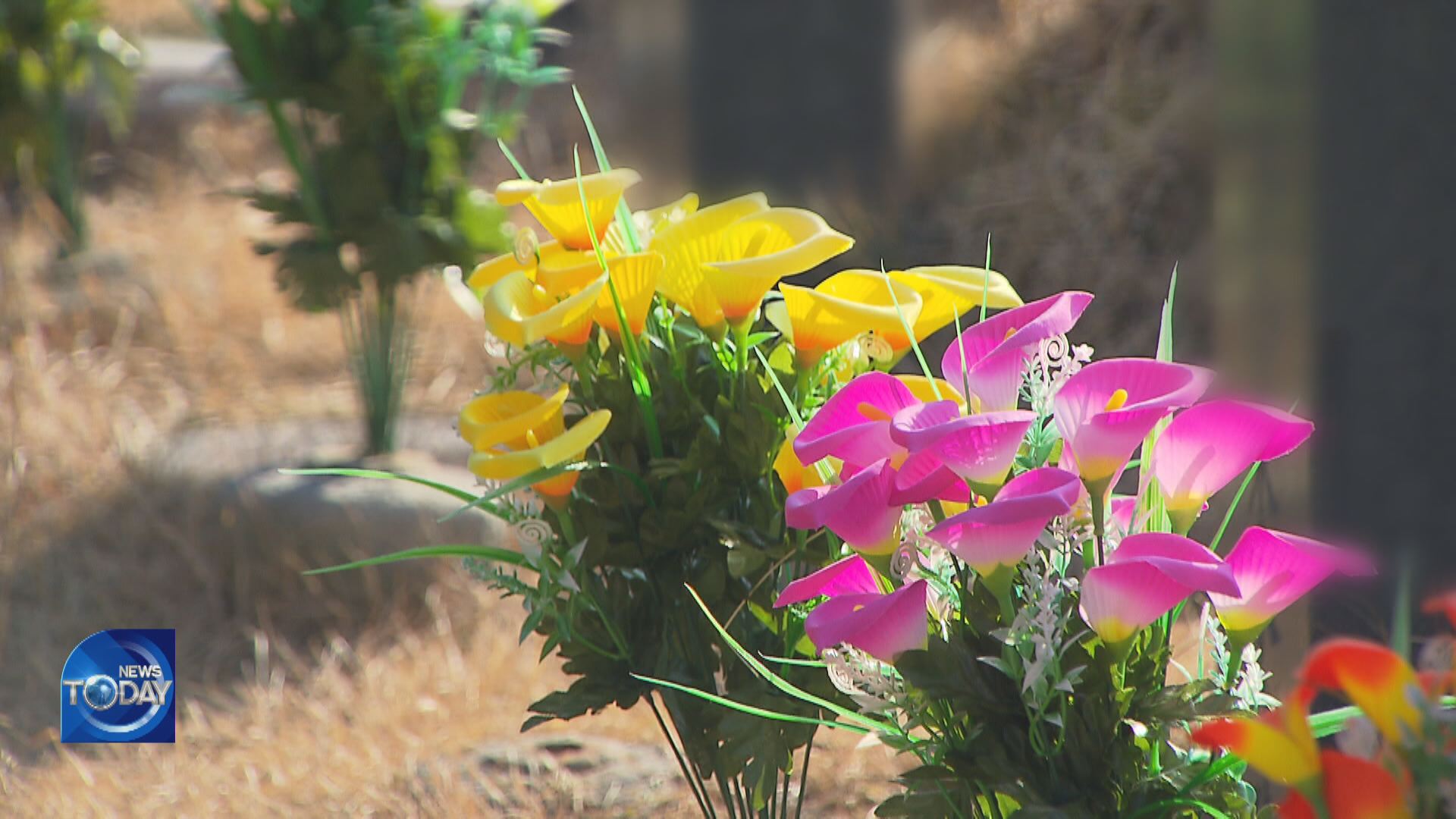
[Anchor Lead]
Many Koreans purchase plastic flowers ahead of the seol holiday to lay flowers at cemeteries. But there are moves to encourage the purchase often real flowers instead of plastic ones to reduce the amount of carbon emission coming from the waste.
[Pkg]
Many grave sites at this cemetery are adorned with colorful flowers. Most of them are fake flowers made from plastic. The plastic flowers are affordable and easy to manage, but this also means piles of garbage after every traditional holiday. This is a cemetery park in Gimhae, Gyeongsangnam-do Province. A visitor places a bouquet of chrysanthemums at a grave. Other relatives have brought pots of flowers that they have raised firsthand.
[Soundbite] Lee Hyun-woo(Busan resident) : "I brought fresh flowers that I have raised myself because I think they are better."
Last year Gimhae City outlawed the use of plastic flowers at four local cemeteries. The city no longer needs to deal with 43 tons of waste produced after every holiday, and can save on garbage incineration and burial costs.
[Soundbite] Park Seung-hyun(Cemetery Park executive) : "We had to throw away plastic flowers in two or three 25-ton trucks. But now we have 80 percent less garbage."
Instead of plastic flowers, cemetery visitors use fresh or dried flowers raised at local farms. There are even vending machines selling dried flowers at each cemetery. They were set up jointly by some 250 local flower farms and retailers. Efforts are also underway to recycle these dried flowers into compost after a certain period of time.
[Soundbite] Lee Chi-kyun(Gimhae City Gov’t) : "We are preparing additional measures to ban the use of plastic flowers at cemeteries and supply fresh or dried flowers instead."
Some two thousand tons of plastic flowers are imported to Korea every year. Reducing their use at 470 cemeteries nationwide is expected to help cut the amount of waste by 1,500 tons and carbon emissions by more than 4,300 tons.
Many Koreans purchase plastic flowers ahead of the seol holiday to lay flowers at cemeteries. But there are moves to encourage the purchase often real flowers instead of plastic ones to reduce the amount of carbon emission coming from the waste.
[Pkg]
Many grave sites at this cemetery are adorned with colorful flowers. Most of them are fake flowers made from plastic. The plastic flowers are affordable and easy to manage, but this also means piles of garbage after every traditional holiday. This is a cemetery park in Gimhae, Gyeongsangnam-do Province. A visitor places a bouquet of chrysanthemums at a grave. Other relatives have brought pots of flowers that they have raised firsthand.
[Soundbite] Lee Hyun-woo(Busan resident) : "I brought fresh flowers that I have raised myself because I think they are better."
Last year Gimhae City outlawed the use of plastic flowers at four local cemeteries. The city no longer needs to deal with 43 tons of waste produced after every holiday, and can save on garbage incineration and burial costs.
[Soundbite] Park Seung-hyun(Cemetery Park executive) : "We had to throw away plastic flowers in two or three 25-ton trucks. But now we have 80 percent less garbage."
Instead of plastic flowers, cemetery visitors use fresh or dried flowers raised at local farms. There are even vending machines selling dried flowers at each cemetery. They were set up jointly by some 250 local flower farms and retailers. Efforts are also underway to recycle these dried flowers into compost after a certain period of time.
[Soundbite] Lee Chi-kyun(Gimhae City Gov’t) : "We are preparing additional measures to ban the use of plastic flowers at cemeteries and supply fresh or dried flowers instead."
Some two thousand tons of plastic flowers are imported to Korea every year. Reducing their use at 470 cemeteries nationwide is expected to help cut the amount of waste by 1,500 tons and carbon emissions by more than 4,300 tons.
이 기사가 좋으셨다면
-
좋아요
0
-
응원해요
0
-
후속 원해요
0










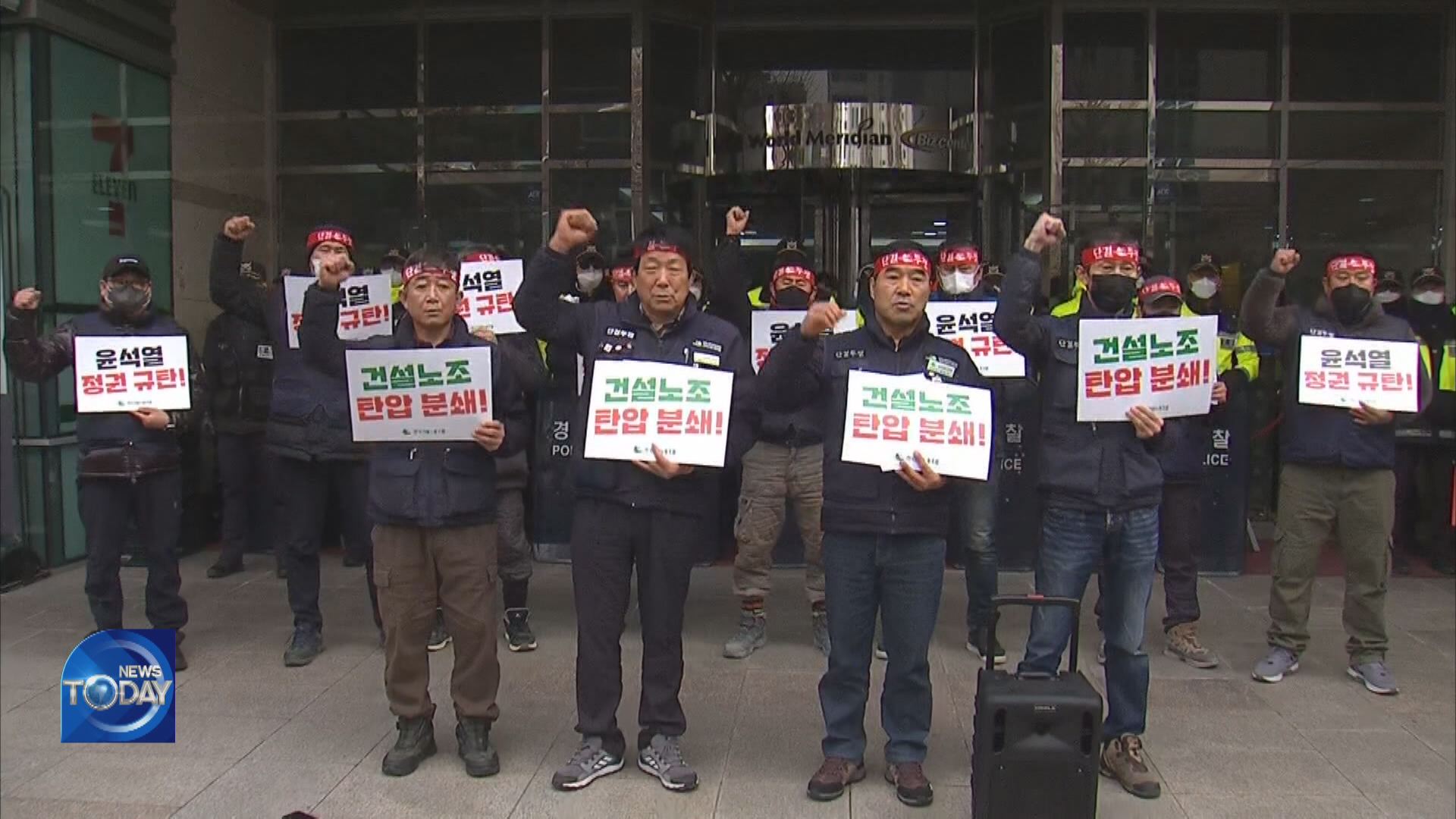
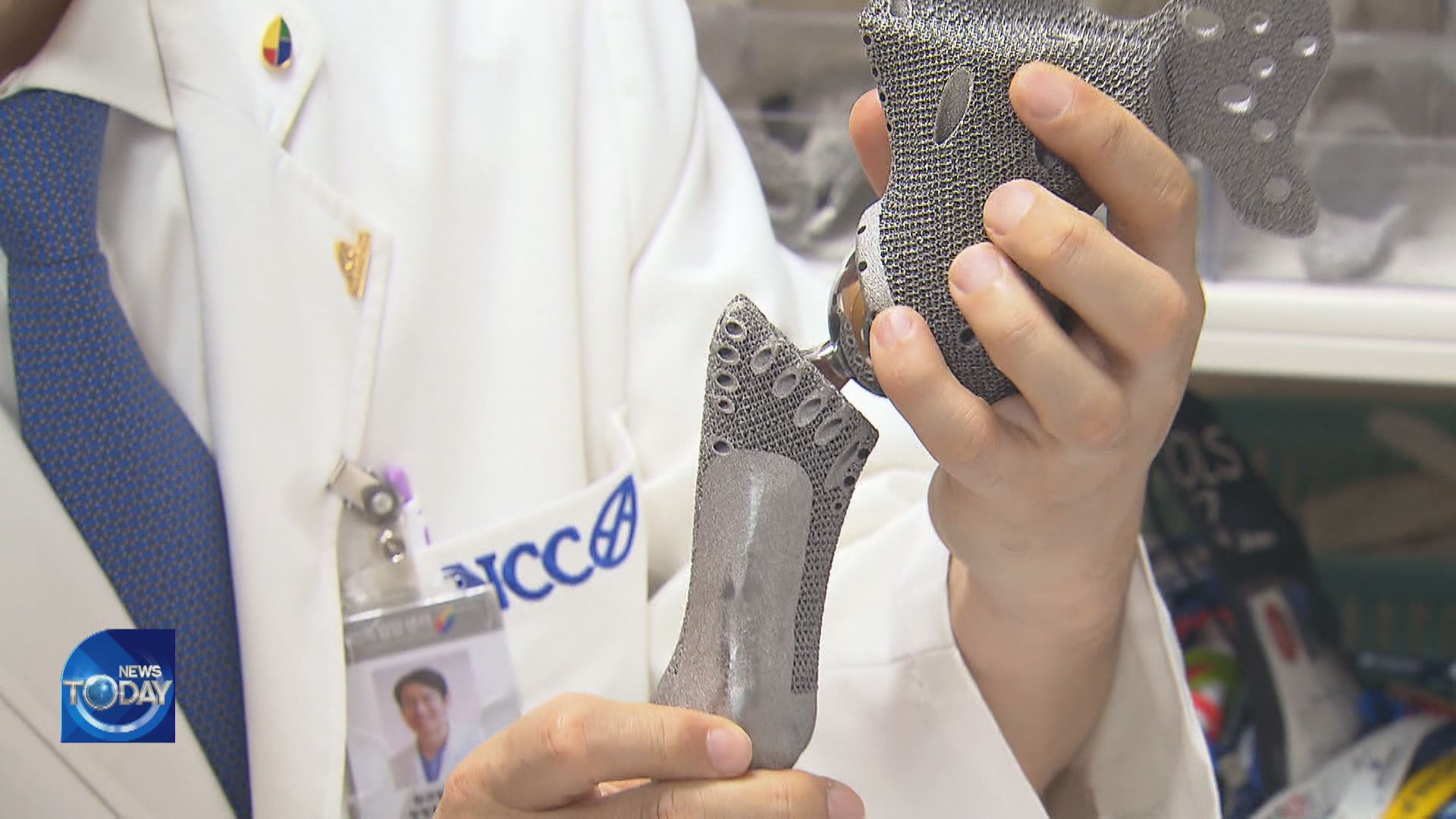
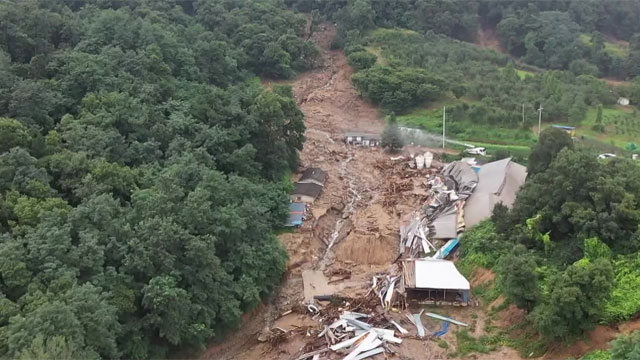

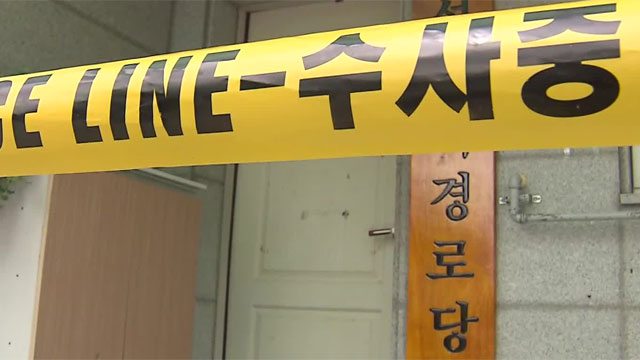
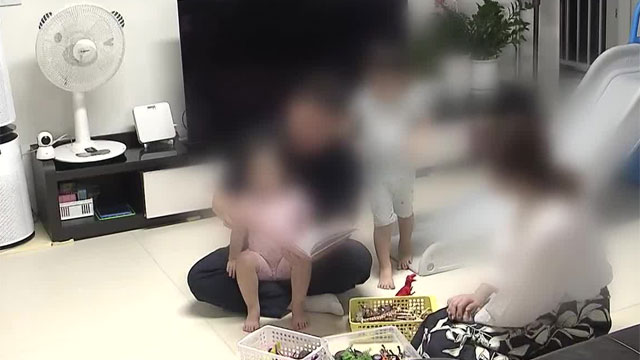

이 기사에 대한 의견을 남겨주세요.